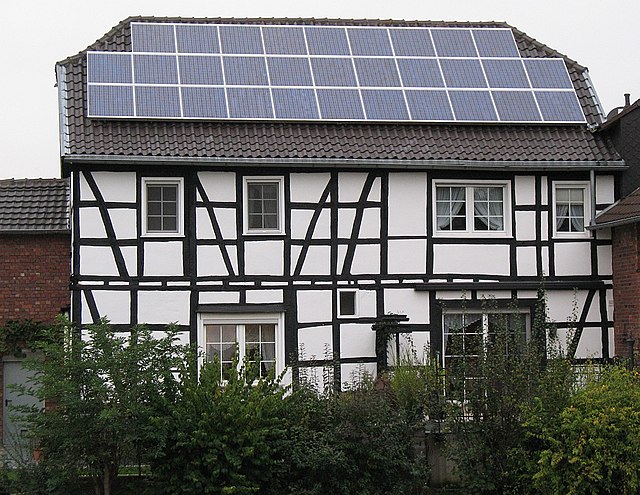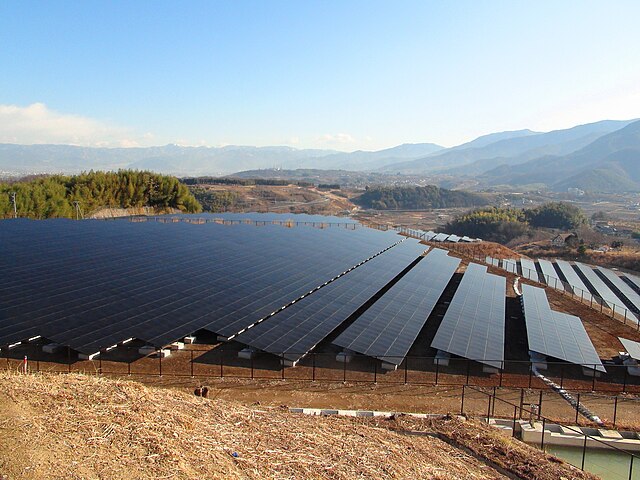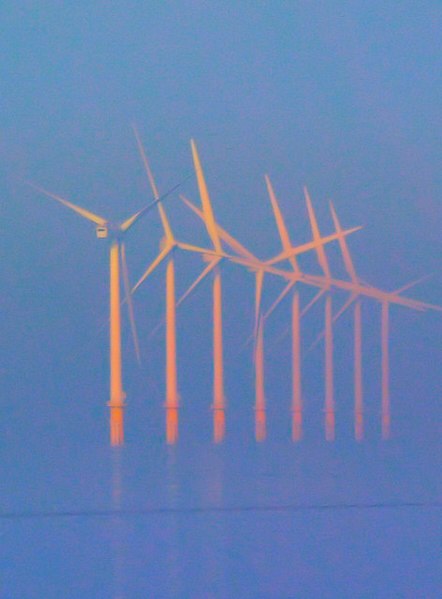Russia in the European energy sector
Russia supplies a significant volume of fossil fuels to other European countries. In 2021, it was the largest exporter of oil and natural gas to the European Union, (90%) and 40% of gas consumed in the EU came from Russia.
Angela Merkel criticized the United States's sanctions against Russia that target EU–Russia energy projects.
Natural gas presented as an instrument of Russian state power
Sergey Kiriyenko, the head of state-owned nuclear corporation Rosatom from 2005 to 2016
Renewable energy is energy from renewable natural resources that are replenished on a human timescale. Using renewable energy technologies helps with climate change mitigation, energy security, and also has some economic benefits. Commonly used renewable energy types include solar energy, wind power, hydropower, bioenergy and geothermal power. Renewable energy installations can be large or small. They are suited for urban as well as rural areas. Renewable energy is often deployed together with further electrification. This has several benefits: electricity can move heat and vehicles efficiently, and is clean at the point of consumption. Variable renewable energy sources are those that have a fluctuating nature, such as wind power and solar power. In contrast, controllable renewable energy sources include dammed hydroelectricity, bioenergy, or geothermal power.
A small, roof-top mounted PV system in Bonn, Germany
Komekurayama photovoltaic power station in Kofu, Japan
Burbo, NW-England
Sunrise at the Fenton Wind Farm in Minnesota, United States







